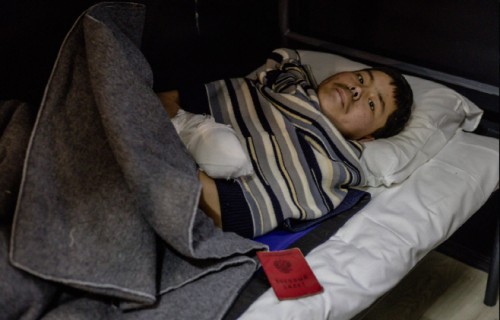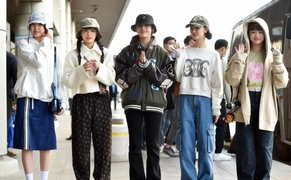 |
| Ukrainian President Volodymyr Zelensky announced on Jan. 11 that Ukrainian forces had captured two North Korean soldiers in the Kursk region of western Russia. President Zelensky posted on his Telegram channel that the two captured North Korean soldiers were injured and had been transported to Kyiv, where they are being interrogated by the Security Service of Ukraine (SBU)./ Source: Ukrainian President Volodymyr Zelensky/X |
AsiaToday reporter Chun Hyun-bin
The South Korean government announced Tuesday that they would consult with Ukraine if North Korean soldiers captured by Ukraine wish to go to South Korea. If the North Korean soldiers wish to be repatriated, the government plans to accept it on humanitarian grounds, as they are considered our nationals according to the Constitution.
“The issue of the North Korean soldiers’ custody requires international legal review and consultation with relevant countries, so we need to monitor the situation further,” an official from the Ministry of Unification said at the government complex.
Previously, Ukrainian President Volodymyr Zelensky stated that they could release the captured North Korean soldiers in exchange the return of Ukrainian soldiers held by Russia. Zelensky also shared a video of the two captured North Korean soldiers, one of whom expressed a desire not to return to North Korea.
It is not clear if this soldier wishes defection to South Korea, but if he expresses a desire for defection, the government is expected to actively review relevant legislation. The National Intelligence Service stated the previous day, “The individual’s wishes are the most important,” and “If they express a desire to defect, we will hold discussions with Ukraine.”
According to the Geneva Conventions, prisoners of war are entitled to the most universal international laws and must be released immediately after the war ends. While the principle is to return them to their home country, they can refuse defection if they wish to go to a third country. Additionally, any form of biological experimentation or torture on prisoners is strictly prohibited.
During the Korean War, some North Korean soldiers who were captured as prisoners of war did not wish to return to the North after the war and were sent to third countries such as Taiwan and Europe. Based on the Geneva Conventions and negotiations with relevant countries, there is a possibility that the captured North Korean soldiers could be repatriated to South Korea or sent to another country. Some prisoners may wish to return to North Korea.
However, there is a variable in that Russia has not officially acknowledged the deployment of North Korean soldiers, so they may not be recognized as prisoners of war. North Korea has also remained silent on the deployment and has not officially confirmed it. Additionally, many of these soldiers are not organized solely as North Korean units but often take the form of mercenaries, receiving Russian uniforms and supplies, so it must be determined whether they can be recognized as “North Korean soldiers.”
Furthermore, many of the North Korean soldiers may have entered with forged identification, leading to the possibility that they could be classified as Russian soldiers. In such cases, the prisoners may be repatriated to Russia.
#S. Korea #Ukraine #North Korean soldiers #defection
Copyright by Asiatoday
Most Read
-
1
-
2
-
3
-
4
-
5
-
6
-
7





















